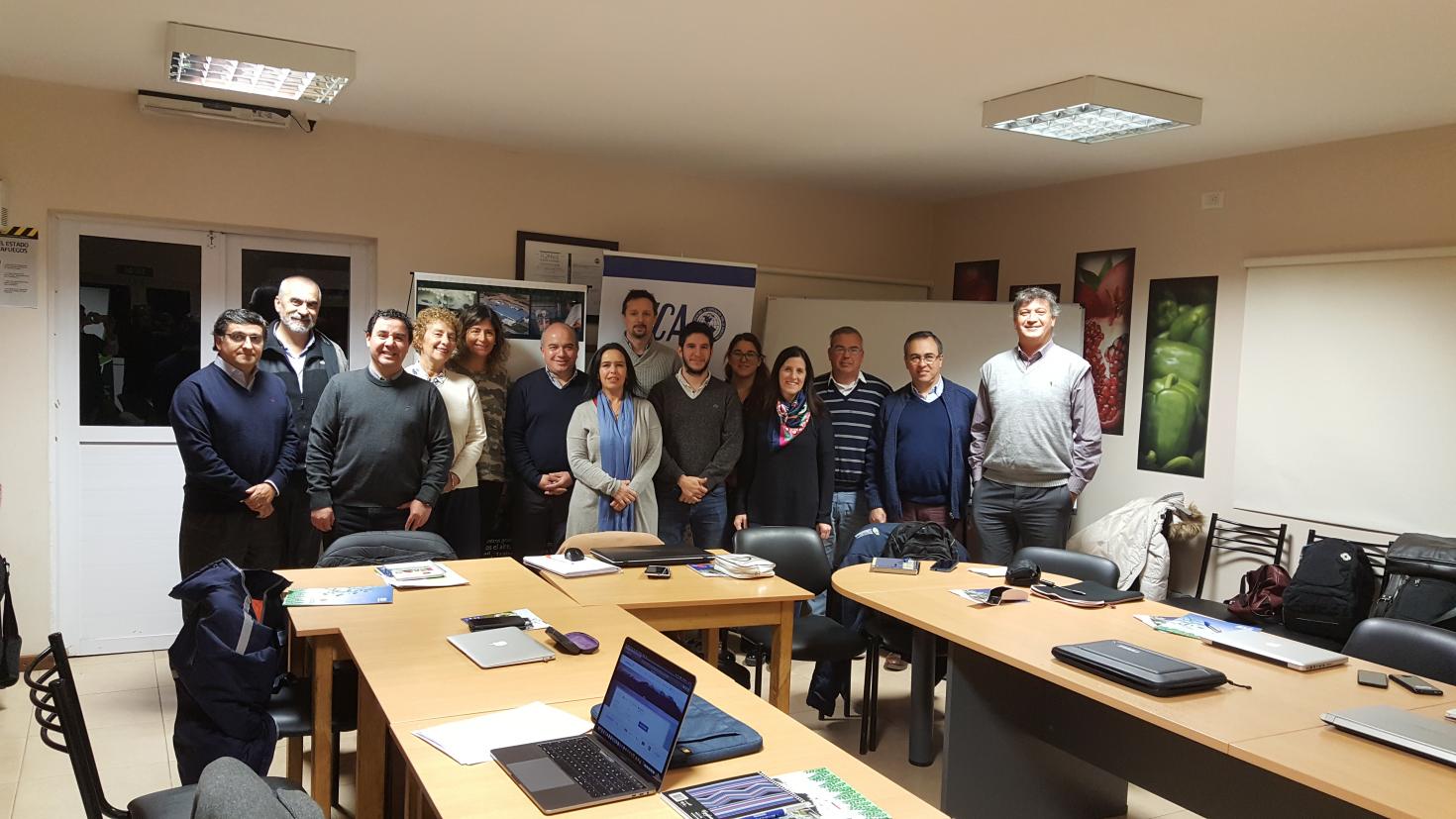With support from IICA, phytosanitary services in both countries are advancing in the development of systems to facilitate decision making based on scientific and technical knowledge.

Mendoza, Argentina, 27 June 2019 (IICA). Specialists from the National Service for Agrifood Health and Quality (SENASA) of Argentina and the Agricultural and Livestock Service (SAG) of Chile met in Mendoza to lay the foundation for the sanitary and phytosanitary intelligence systems that they will jointly implement with support from the Inter-American Institute for Cooperation on Agriculture (IICA).
During the meeting, the participants defined concepts and objectives, identified tools, and outlined the work that will be carried out. The goal will be to improve phytosanitary surveillance through the development of technologies, the drafting of reports on international threats, and the design of epidemiological models for relevant pests.
Ricardo Luis Negri, President of SENASA, underscored the need to generate systems that would allow for addressing the variables that make sanitary and phytosanitary protection increasingly complex, by providing objective elements to facilitate decision making.
He added that these mechanisms should be scalable, in order to adequately address multiplying variables in the medium term.
Innovative technological tools are being integrated to develop these systems, which aim to support decision making based on scientific and technical knowledge. This, in turn, will allow for addressing various territorial contexts, thus utilizing resources in an efficient manner.
Marco Muñoz Fuenzalida, Head of the Plant Health Department at SAG, emphasized the importance of having a system that can issue warnings regarding phytosanitary threats, assess their priority, and propose response actions.
The participants from Argentina noted that the State’s duty to guarantee healthy production and food safety cannot be delegated; they also discussed the private sector’s relevant role in this regard.
Building upon its experience in matters related to technology and attention to emerging issues, IICA provided technical and financial support to this initiative, in an effort to boost the capacity to anticipate and respond to a number of issues that affect its member countries.
IICA also coordinated the participation of experts from the National Service for Agrifood Health, Safety and Quality (SENASICA) of Mexico and the United States Department of Agriculture – Animal and Plant Health Inspection Service (USDA/APHIS).
More information:
Lourdes Fonalleras, International Specialist in Agricultural Health and Food Safety at IICA
Tomas Krotsch, Agricultural Health Specialist at the IICA Delegation in Argentina
Jaime Flores, IICA Representative in Chile











